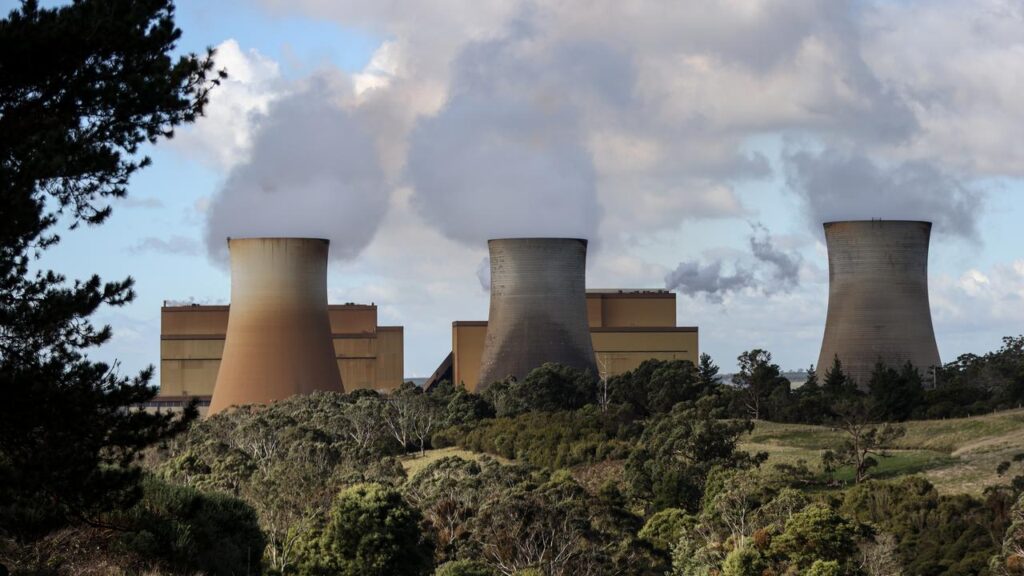Liberals risk joining ‘baddies’ with fossil-fuel push
Tess Ikonomou |

A senior Liberal has warned his party would push Australia towards joining “baddies” in rejecting international climate goals as it prepares to back fossil fuel-fired power.
Political infighting within the coalition has intensified over the Liberals’ commitment to a target of reaching net-zero emissions by 2050, a position the party is poised to follow junior partner the Nationals in dumping.
The Liberal Party’s formal position on the climate target will be decided following meetings in Canberra mid-week.
Liberal frontbencher and leading moderate Andrew Bragg on Sunday indicated he could quit shadow cabinet if his party decided it would pull out of the Paris Agreement and not maintain a clear goal for lowering emissions.

“If we left Paris, we’d be with Azerbaijan, Iran, Syria, you know, and a few other baddies,” he told ABC’s Insiders program.
“Australia has never been with those people before.
“Australia needs to be in Paris, in my opinion, and then we need to try to find a way to do net-zero better than Labor. That is better for jobs, better for industry, and better for decarbonisation.”
Senator Bragg added the Liberals were “not fringe dwellers” and most Australians want the nation to play a fair role in reducing emissions, an objective seen as key for the party to reverse its electoral decimation in urban seats.
Under the Paris Agreement, signed in 2015, members must increase their emissions targets every five years and cannot water down their goals.

Asked if Opposition Leader Sussan Ley could survive dropping support for net zero, Senator Bragg said you couldn’t have a “fatwa” on two words.
“Australia cannot set out its own international standard,” he said.
“What Australia can do is work out its own plan for how it will get to net zero over the medium to long term.”
Opposition energy spokesman Dan Tehan has flagged subsidies could be offered to keep current coal-fired power plants operating for longer under the coalition’s long-awaited climate and energy plan.
“We need to make sure that we’re sweating those coal assets … and also that we can get more gas into the system much more quickly,” he told Sky News.
When asked if the opposition would back financial support for coal plants, Mr Tehan said those discussions would take place and it was “absolutely crucial” to work with the states to ensure the fossil fuel would stay in the system to bring power prices down.
The NSW Labor government in 2024 moved to extend the life of Australia’s largest coal-fired power station, Eraring, while the Queensland Liberal National government wants to continue running coal plants until 2046.

Mr Tehan also foreshadowed the Liberals would continue their pre-election policy of supporting the development of nuclear power plants.
“Absolutely we want to see a nuclear policy, and we’ve already committed, through the coalition agreement, to lifting the ban, and that will be very much part of the discussions we have,” he said.
Removing a federal ban on nuclear power in Australia, introduced under the Howard coalition government in the late 1990s, was a condition to mending the split between the Nationals and Liberals following the disastrous May election.
Pressure has been mounting on Ms Ley over the opposition’s climate policies, which have divided moderate and conservative members of her party, while the coalition has been left reeling by a series of dire polls.
Mr Tehan backed Ms Ley when asked if she was up to the job.
“The majority in the party room said … she was the person that should lead us to the next election,” he said.
“Let’s make sure that after the worst election defeat that we have suffered since the Second World War, that we start to get a policy platform that we can enunciate and take to the Australian people.”
AAP